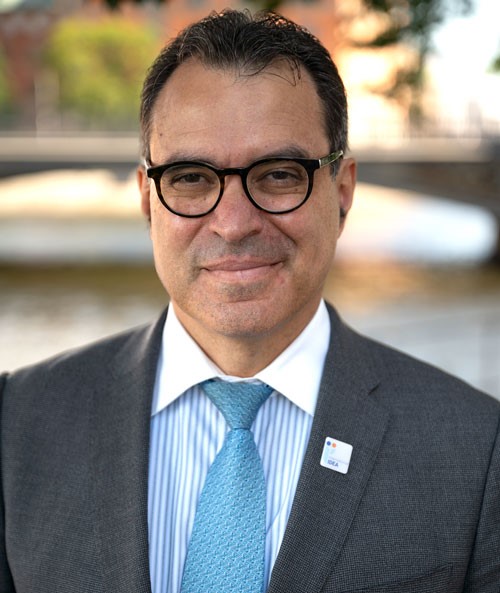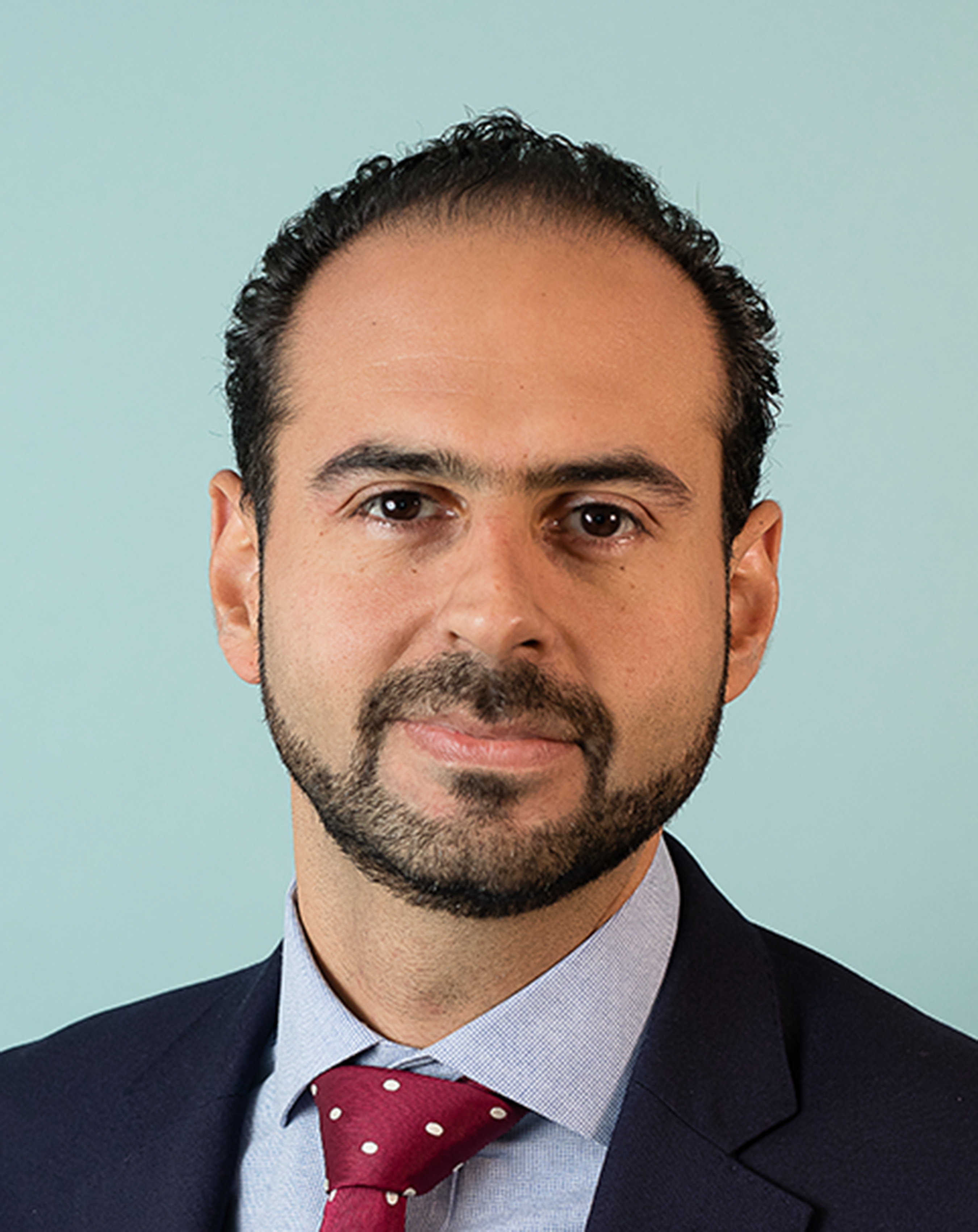Does democracy heal? Advances, setbacks and challenges for democracy in Latin America
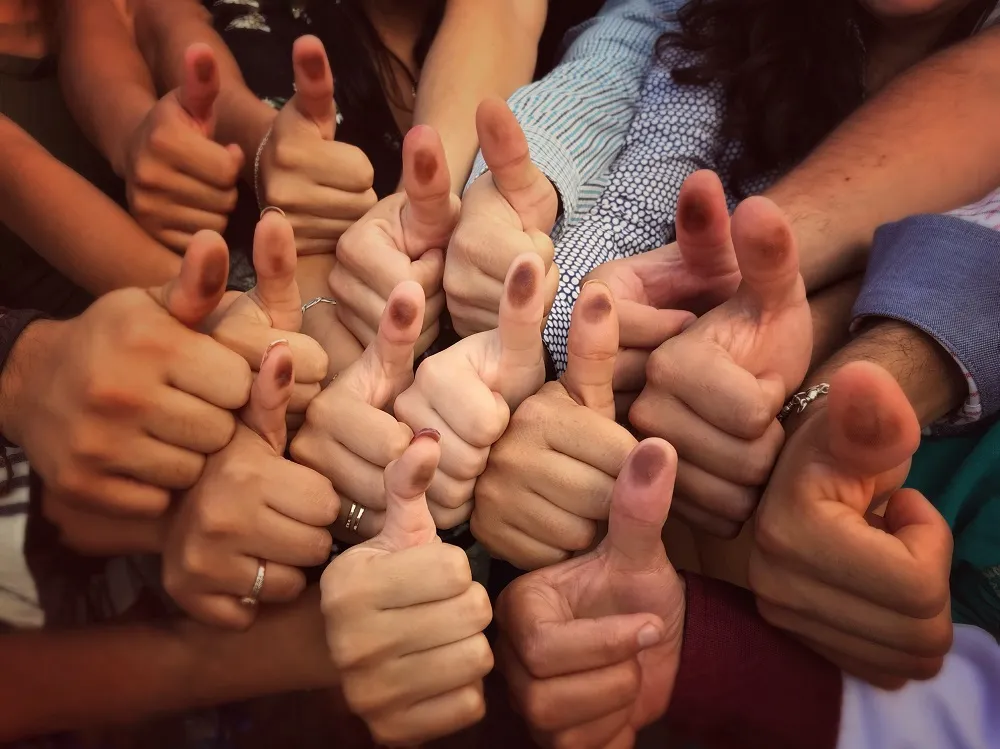
Sergio Bitar, a distinguished Chilean intellectual incarcerated after the 1973 coup, said that if you looked at Latin America in 1975 you witnessed a dark spectacle of dictatorships. Since then, things have changed. Today, nine out of ten people in the region live under democracies (See Figure 1).
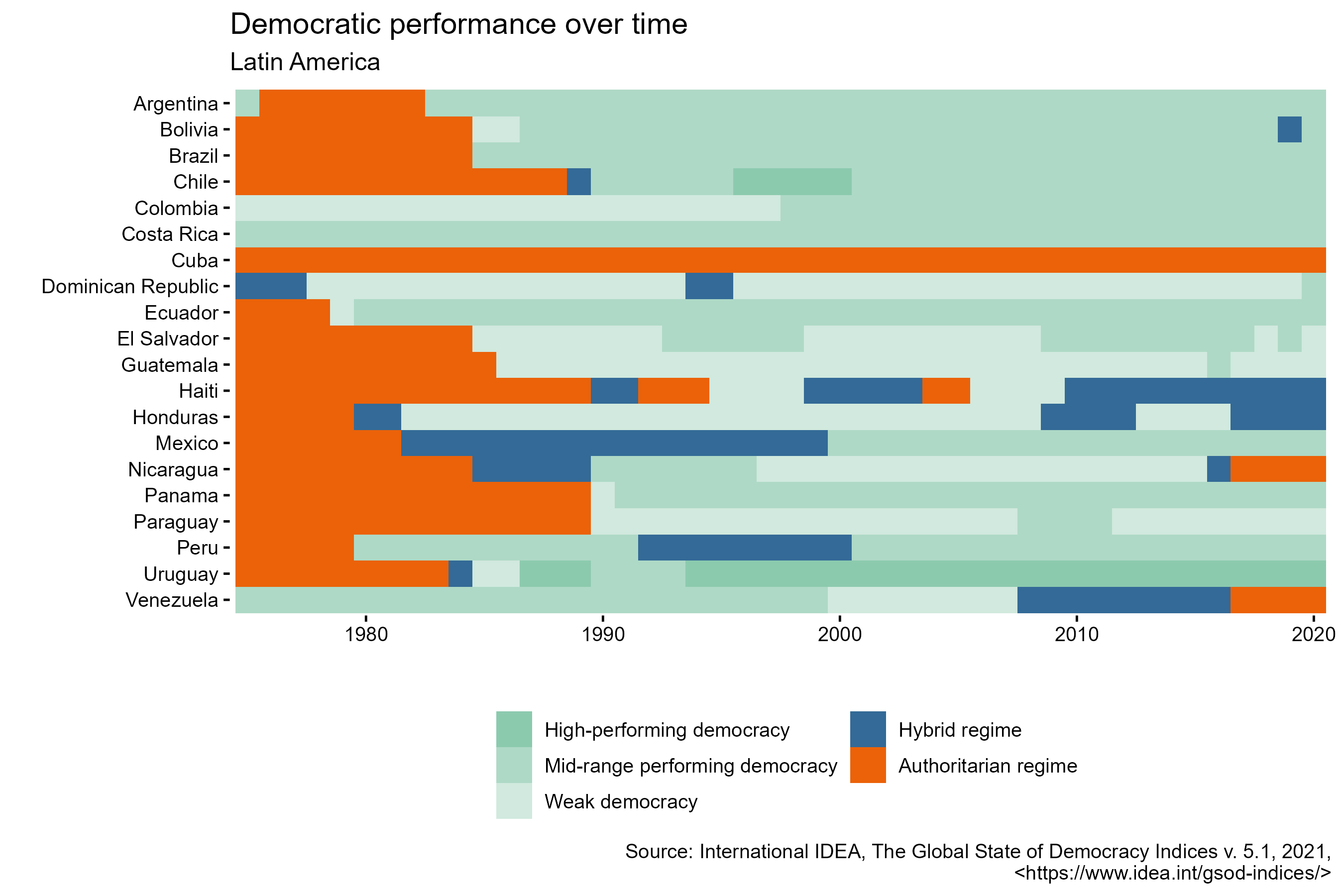
Progress, challenges
This means political power in Latin America is no longer decided in army barracks, in mountains, or through unfair elections. Free elections are the norm. This is a transformation. International IDEA’s Global State of Democracy Indices show this. IDEA’s “Representative Government” attribute, which measures the extent to which a country holds clean elections and has free political parties, universal suffrage, and an elected government, increased from 0.32 (on a 0 to 1 scale) in 1975 to 0.67 in 2020. Latin America is home to 3 of the 5 countries with the highest scores for this attribute worldwide (Chile, Costa Rica, and Uruguay).
This is not the only sign of progress. Scores for the ‘Fundamental Rights’ attribute, related to individual liberties and resources, and the ‘Checks on Government’ attribute, which measures effective control of executive power, both nearly doubled in the same period.
But progress has faced some challenges. As seen in Figure 2, corruption has remained stubbornly present, and International IDEA’s ‘Impartial Administration’ attribute (composed of two sub-attributes: predictable enforcement and absence of corruption) has recorded the least progress since 1975.
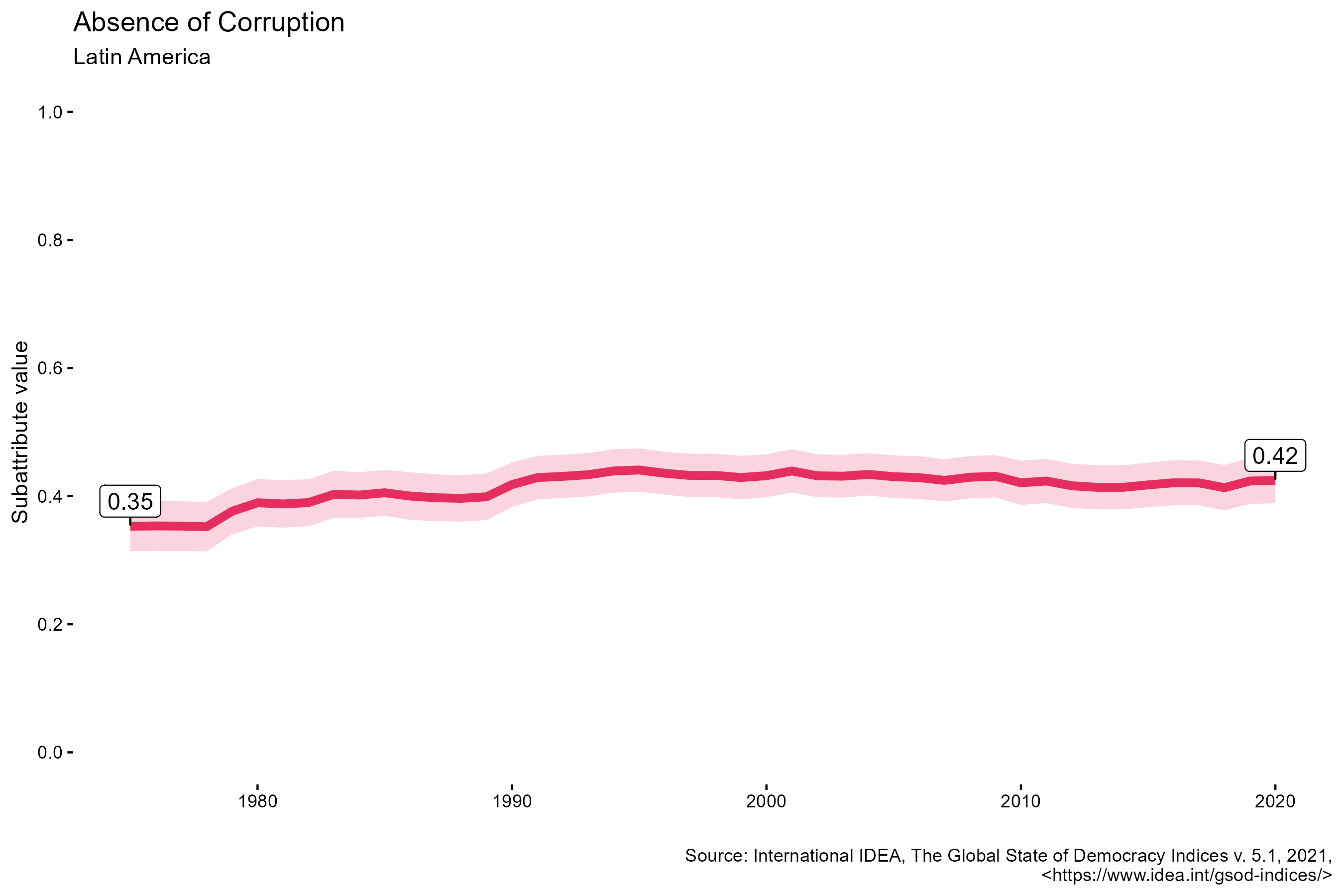
Moreover, while most countries registered advances in the 90s and 00s, recently the pace has slowed and declines have sometimes outnumbered advances. Developments in Venezuela and Nicaragua mean Cuba is no longer the region’s sole authoritarian regime.
This is part of a larger trend. Many experts say democracies risk dying (Ziblatt & Levitksy, 2018) and disenchanted voters are turning against democratic institutions (Mounk, 2018). Governments, parties, and leaders are attacking civil society, media, and independent institutions that check the executive powers. Today, democracies do not break down because of coups, but by democratically elected leaders who dismantle its institutions from within.
And yet it moves
Notwithstanding its challenges, it is vital to acknowledge what Latin America democracy has achieved over the past generation. Regular elections provide citizens with unprecedented power, improving people’s wellbeing. Democracy is not only intrinsically valuable, it is also an instrument of progress. The United Nations Economic Commission for Latin America and the Caribbean (ECLAC) say poverty in Latin America fell by 18% and extreme poverty dropped by more than half from 1990 to 2018. The first two decades of this century registered economic growth, more social investment, and decreasing inequality. Political inclusion through competitive elections has benefited social development, albeit with a time lag.
Progress might seem slow and uneven, but we should not lose sight of it or take it for granted. The self-proclaimed political prophets that have appeared in our political landscape are right about one thing: there is still much to do. But for achieving this, democracy is our ally, not our enemy.
Author's Note: This post is a summary of the article published in Foreign Affairs Latin America (Vol 21 (3) July-September 2021), under the same name, in Spanish, updated with data from the latest version of the Global State of Democracy Indices (v 5.1)
